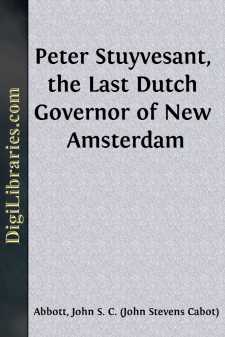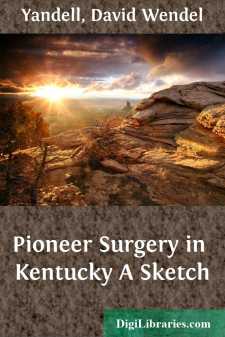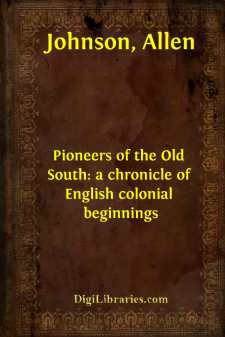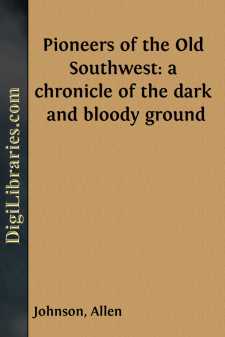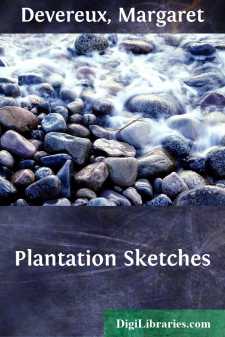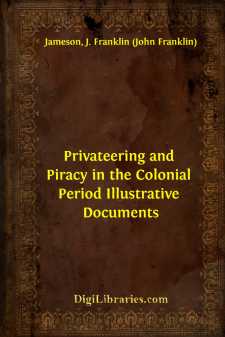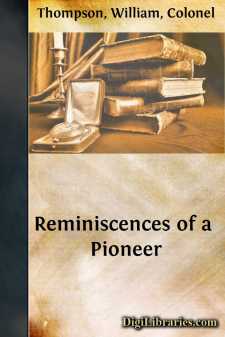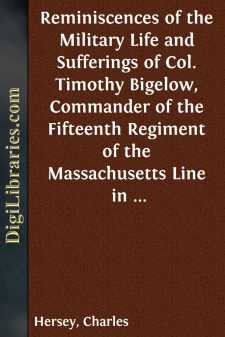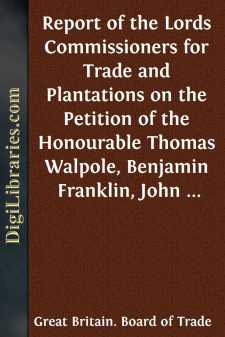History
- Africa 30
- Americas (North Central South West Indies) 50
- Ancient 68
- Asia 58
- Australia & New Zealand 8
- Canada 41
- Caribbean & West Indies 1
- Civilization 20
- Eastern Europe 12
- Europe 310
- Expeditions & Discoveries 60
- General 77
- Historical Geography 1
- Jewish 9
- Latin America 3
- Medieval 8
- Middle East 13
- Military 248
- Revolutionary 8
- Study & Teaching 5
- United States
- Western Europe 56
- World 13
United States Books
Sort by:
CHAPTER I. DISCOVERY OF THE HUDSON RIVER. The Discovery of America.—Colonies.—The Bay of New York.—Description of the Bay.—Voyage of Sir Henry Hudson.—Discovery of the Delaware.—The Natives.—The Boat Attacked.—Ascending the Hudson.—Escape of the Prisoners.—The Chiefs Intoxicated.—The Return.—The Village at Castleton.—The...
more...
A SKETCH. Fellows of the Association: In the endeavor to chronicle the lives and achievements of Kentucky Pioneers in Surgery, I shall not attempt the resurrection of village Hampdens or mute inglorious Miltons. The men with whom I deal were men of deeds, not men of fruitless promise. It may with truth be said that from Hippocrates to Gross few in our profession who have done enduring work have lacked...
more...
by:
Allen Johnson
CHAPTER I. THE THREE SHIPS SAIL Elizabeth of England died in 1603. There came to the English throne James Stuart, King of Scotland, King now of England and Scotland. In 1604 a treaty of peace ended the long war with Spain. Gone was the sixteenth century; here, though in childhood, was the seventeenth century. Now that the wars were over, old colonization schemes were revived in the English mind. Of the...
more...
by:
Allen Johnson
Chapter I. The Tread Of Pioneers The Ulster Presbyterians, or "Scotch-Irish," to whom history has ascribed the dominant role among the pioneer folk of the Old Southwest, began their migrations to America in the latter years of the seventeenth century. It is not known with certainty precisely when or where the first immigrants of their race arrived in this country, but soon after 1680 they were...
more...
TO MY GRANDCHILDREN As the “New South,” with all its changes and improvements, rises above the horizon, those whose hearts still cling to the “Old South” look sadly backward and sigh to see it fade away into dimness, to be soon lost to sight and to live only in the memory of the few. Hoping to rescue from oblivion a few of the habits, thoughts, and feelings of the people who made our South what...
more...
PREFACE The National Society of the Colonial Dames of America have formed the laudable habit of illustrating the colonial period of United States history, in which they are especially interested, by published volumes of original historical material, previously unprinted, and relating to that period. Thus in the course of years they have made a large addition to the number of documentary sources...
more...
by:
William Thompson
Chapter I. Farewell to the Old Southern Home. I have often wondered, when viewing a modern passenger coach, with its palace cars, its sleeping and dining cars, if those who cross the "Great American Desert," from the Mississippi to the Pacific in four days, realize the hardships, dangers and privations of the Argonauts of fifty-eight years ago. The "Plains" were then an unbroken...
more...
by:
Charles Hersey
INTRODUCTION. The writer of the following pages was dandled upon the knee of a worthy sire, who had spent eight years of his life in the struggle for Independence, and taught me the name of Col. Bigelow, long before I was able to articulate his name. Many have been the times, while sitting on my father's lap around the old hearthstone, now more than fifty years since, that I listened to affecting...
more...
My Lords, Pursuant to your lordships order of the 25th May 1770, we have taken into our consideration the humble memorial of the honourable Thomas Walpole, Benjamin Franklin, John Sargent, and Samuel Wharton, Esquires, in behalf of themselves and their associates, setting forth (among other things) "That they presented a petition to his Majesty, in council, for a grant of lands in America (parcel...
more...
OLIVER BELL BUNCE. (1828-1890) The name of Oliver Bell Bunce is not prominently connected with the American Theatre. Authorities have taken little or no trouble to unearth his association with the plays and players of his time—the mid-period of the nineteenth century. Yet they all agree that, as illustration of "parlour comedy," his "Love in '76" is a satisfactory example of...
more...


